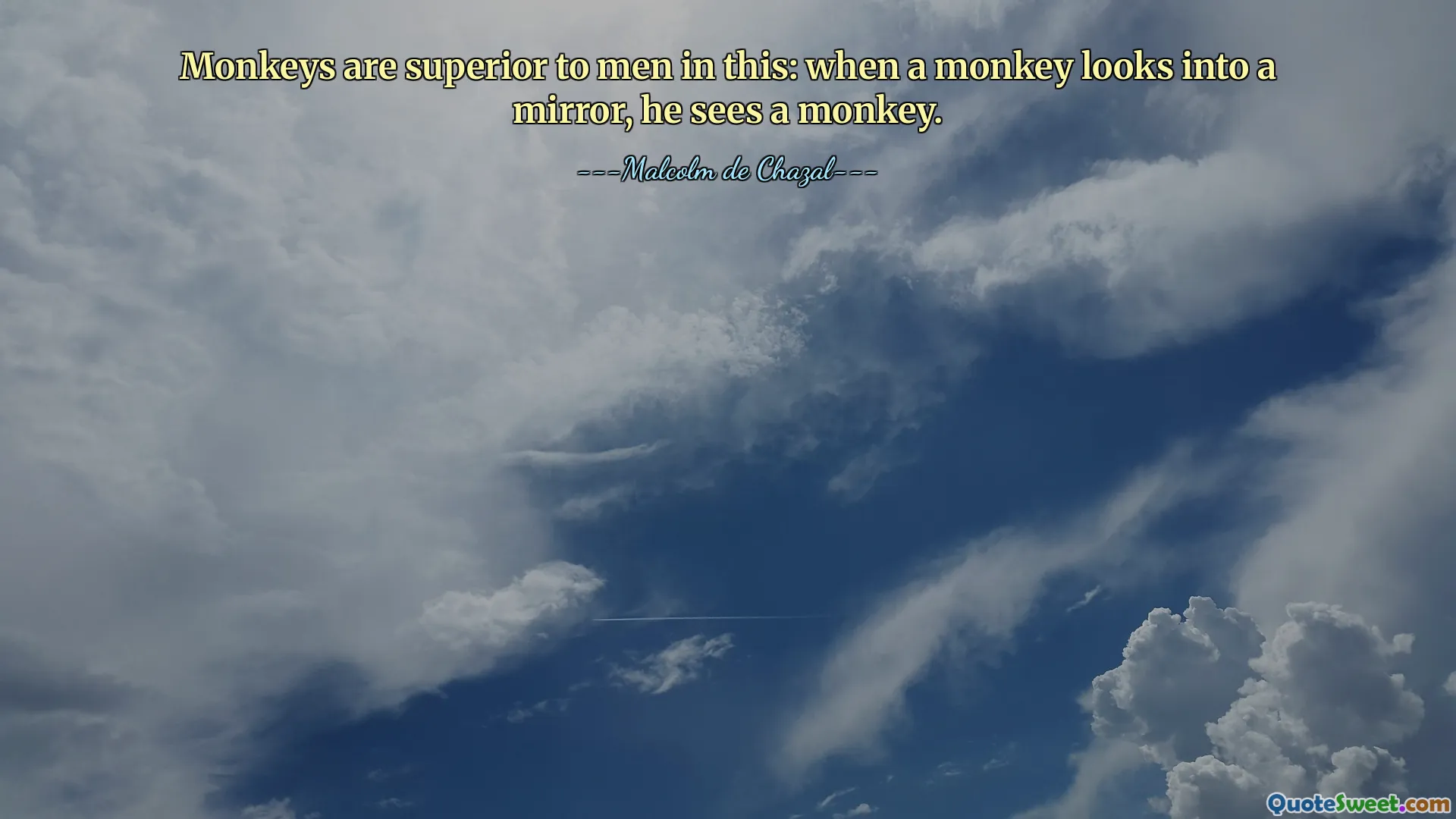
Monkeys are superior to men in this: when a monkey looks into a mirror, he sees a monkey.
This quote prompts a reflection on self-awareness and the perception of oneself versus others. Monkeys, in this context, recognize their own reflection and understand that it represents who they are, which illustrates a form of self-awareness. Humans often struggle with this concept—it's not just about recognizing ourselves in a mirror but also about how we perceive our identity, our flaws, and our greatness. The quote suggests that monkeys possess a kind of honesty or simplicity that humans might lack; they accept themselves without the complexities of self-deception or vanity. In modern society, self-perception can be clouded by external influences, ego, and social expectations. Meanwhile, the monkey's reaction signifies a pure acknowledgment of oneself, unapologetic and unfiltered. This humility can be a lesson for humans to embrace their true nature without pretense or distortion. It also challenges us to consider whether our self-awareness is genuine or heavily influenced by our desire for approval or denial of our flaws. In understanding others, we often project our judgments, but the monkey's straightforward gaze into the mirror reminds us of the value in authentic self-recognition, however humble it may be. Recognizing who we are is crucial for growth, acceptance, and genuine connections. The analogy ultimately invites us to reflect on sincerity—how transparent are we with ourselves, and can we accept the truth reflected back to us?






